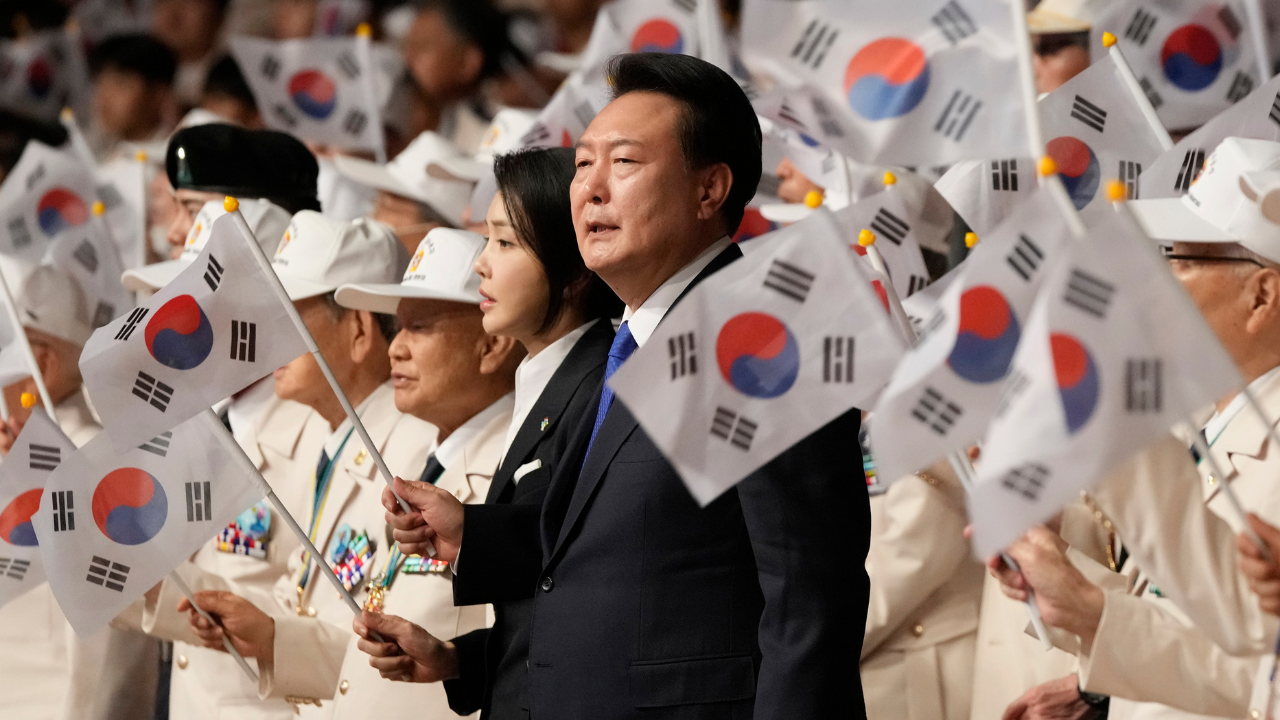What are the issues with South Korean presidents facing ignominy, impeachment, death sentences, and imprisonment?
After issuing a bizarre martial law order, President faces disgrace alongside Korea's former leaders.

On Saturday, South Korean President Yoon Suk Yeol was not impeached after his People Power Party (PPP) boycotted the vote. However, Yoon's troubles are far from over. The leader of his own party, the PPP, called for Yoon's presidential powers to be suspended after it was revealed that the president had ordered the arrests of his political opponents following the announcement of martial law. Among those on the list was the head of the PPP.
Despite the possibility of another impeachment vote, Yoon has already tarnished his reputation with an unconstitutional power grab. Whether he completes his term or is removed from office, he will join the ranks of predecessors with questionable legacies.

If Yoon were to enter a prison cell, it would not be surprising in Korea, as the probability of him doing so is low. Out of the last six democratically elected presidents of Korea, only one has not served time in jail. This amounts to a success rate of approximately 17%.
Despite its picture-perfect image, Korean democracy has a dark past. Since World War II, the country has had 13 heads of state, and not all of them were champions of democracy. One was forced to resign and flee, two were overthrown in military coups, and one was murdered by his closest friend, who was also the head of South Korea's intelligence agency.
All eight democratically elected presidents, including Yoon, have been involved in scandals. Even Kim Dae-jung, who won a Nobel Peace Prize and was a dissident-turned-president, is now viewed less positively due to revelations that he bribed North Korea to hold an unprecedented inter-Korean summit meeting.

Four Korean presidents have served time in prison, with two being impeached and one convicted and removed from office. One ex-president took his own life by jumping off a 150-foot-high mountain cliff in 2009 after his aides, relatives, and even wife and son were investigated for bribery and other corruption charges. Since the country's founding, two presidents have been sentenced to death but later pardoned.
It is surprising that despite being a democratic, highly educated, technologically advanced, conservative, and deeply religious society, Korea's ex-presidents rarely experience a happy post-presidency.

"Professor Lee stated to Planet Chronicle Digital that the president of Korea possesses a significant amount of power, which he believes is excessive. This has led some to label it an "imperial presidency," which ultimately results in hubris."

In North Korea, people show their devotion to the idea of a communist state with a dynastic leader, Kim Jong-un, who is adored and followed by an entourage of scribes who record every word he says for posterity.
In South Korea, strict discipline and grueling work hours have led to the creation of globally respected brands such as Samsung and Hyundai, as well as the dominance of K-pop and K-drama in Asia and around the world.
The dark side of South Korea's culture includes the overzealousness that is prevalent in North Korea. South Korean bosses, teachers, elders, and leaders are used to being obeyed. At the top of the social hierarchy sits the president, who lives in a bubble where questioning their judgment is almost taboo. These leaders often develop a strong tendency to see themselves as infallible, if not above the law. President Yoon, like many before him, is discovering too late that there are red lines, and the Rubicon now lies behind him.
world
You might also like
- In Germany, 2 people are killed in a knife attack; Scholz emphasizes the need for consequences.
- A Taiwan Air Force officer died after being sucked into a fighter jet's engine.
- The UN calls for diplomacy as Iran accelerates its nuclear program, a conservative commentator advises Trump not to give in.
- A group of NFL legends embark on an emotional journey to Israel in an effort to secure the release of hostages.
- Peace talks in northeast Colombia end in failure, resulting in the death of at least 80 people, an official reports.



















